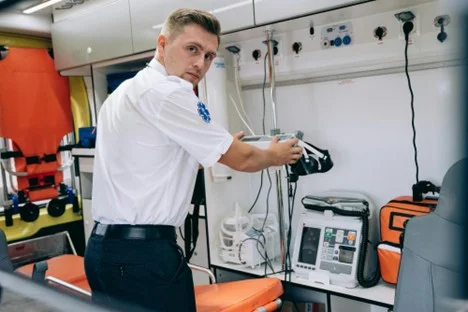Are you thinking about becoming an Emergency Medical Responder (EMR) but feeling confused by all the course options? We’ve got you covered with a simple guide to help you choose the right emergency medical responder course for you. In today’s world, knowing how to respond to emergencies is important.
But with so many different course structures, it can be hard to figure out which one is best for you. That’s where we come in. Our tips will guide you through the process.
Get ready to start a rewarding journey by picking the perfect EMR course for you.
1. Assess Your Goals
Before you sign up for any first responder training program, it’s essential to define what you hope to achieve with your training. Are you aiming to work as a volunteer responder, or are you looking for a foundation to continue your education in paramedicine or nursing? Each emergency medical responder course varies in its curriculum and level of certification.
For instance, if you aspire to become a full-time paramedic, a comprehensive course might be necessary. However, if your goal is to assist in emergencies as a volunteer, a shorter course that emphasizes the following:
- basic first aid
- and CPR may suffice
Have a clear understanding of your long-term objectives. This will guide you in selecting the right course.
2. Course Content and Curriculum
Once you have a grasp on your goals, take a closer look at the curriculum offered by various programs. An effective emergency medical responder course should cover vital topics such as:
- Basic life support (BLS)
- Medical terminology
- Patient assessment techniques
- Treatment protocols for common emergencies
- Legal and ethical considerations in EMS
It’s beneficial to review the course syllabus and even reach out to instructors if you have questions about specific content areas. This will help ensure that the training aligns with your interests and future aspirations in emergency medical services.
3. Accreditation and Instructor Expertise
Supporting your education with an accredited program can make a significant difference in your career prospects later on. Accreditation ensures that the course meets established educational standards.
Additionally, consider the qualifications of the instructors involved in the program. Instructors with real-world experience in emergency medical services bring invaluable insights that can enhance your learning. Make sure they have an emergency care certification and have a reputable background so that you receive instruction from knowledgeable professionals.
4. Flexibility and Learning Format
Depending on your schedule, the format of the coursework might heavily influence your choice. Some students may thrive in an in-person classroom setting, while others may prefer an online format that allows for flexible learning.
Take into account whether the course offers a hybrid model or purely online options, as these can provide the freedom to balance work and studies effectively. If you have a demanding schedule or family commitments, a flexible program can make your path to becoming an emergency medical responder much easier. For further details on various programs, learn more here.
Find the Best Emergency Medical Responder Course for Your Goals
Choosing the right emergency medical responder course is essential in ensuring that you have the necessary skills and knowledge to effectively respond to emergency situations. Don’t wait. Start your journey to becoming a certified emergency medical responder today!
Don’t hesitate, take action and enroll in a course that suits your needs. Your abilities could make a significant difference in someone’s life during an emergency. Choose wisely and invest in the right emergency medical responder course for yourself.
Looking for more tips and advice? Make sure to bookmark our page and come back to check out more interesting articles.

